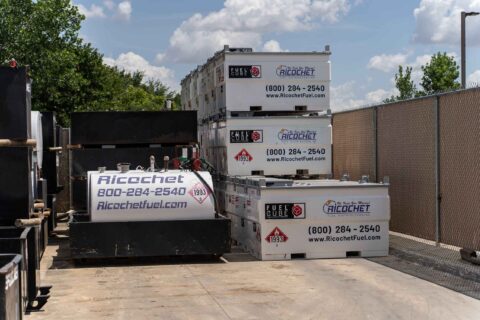How Seasonal Changes Affect Bulk Fuel Storage & Efficiency
Bulk Fuel is an essential resource for many industries, and it is often greatly impacted in terms of storage by the environmental changes. As the seasons change, the chemical and physical properties of fuel change with time. Understanding Seasonal Fuel Storage and Efficiency is therefore very crucial for any business that relies on fuel to run heavy machinery, transportation fleets, or backup power systems. Fuel is not stable year-round, and each particular season presents its own set of risks. These risks can result in issues in quality, operational downtime, or costly damage if not handled properly.
Summer: Heat, Evaporation, and Microbial Hazard
For the summer months, that threat is escalating temperatures. One of the most direct results is the impact of extreme heat on fuel evaporation. Higher temperatures lead to quicker evaporation of the lighter compounds in gasoline and diesel. This eventually diminishes the energy content of the fuel. Plus, it may lead to the formation of vapor pockets inside the tanks or the fuel systems, which can further disrupt combustion and reduce efficiency.
Heat also speeds condensation in storage tanks, particularly those that get direct sun or aren’t well insulated. This can be especially problematic when hot daytime temps are preceded by cool nights. The quick cooling of warm tanks creates a vacuum that pulls in humid air. This humidity then settles down to the bottom of the tank. Over time, this accumulation of water produces microbial contamination. Water and organic material promote the growth of bacteria and fungi. Humidity leads to microbial growth in storage tanks, which grows into biofilms and sludge that block filters and eat through tank linings.
Without appropriate intervention, microbial contamination could proliferate, spoil fuel, and cause serious damage to engines.
Winter: Gelling, Viscosity and Combustion Problems
Winter introduces a whole new set of challenges when it comes to fuel storage. Fuel gelling is one of the most serious problems. As the temperature falls, the paraffin waxes found in diesel fuel start to crystallize. This crystallization can clog fuel filters and lines. The thickening of the fuel eventually leads to slower flow rates and possible system shutdown.
Cold weather also thickens fuel in addition to causing it to gel. Viscosity changes can reduce flow efficiency, stress fuel pumps, and negatively affect injector performance. Thick fuel cannot be atomized correctly during combustion. Thus, resulting in an incomplete combustion process, greater emissions, and a decrease in power output. These issues are not just mechanical but economic, as it takes more energy to run the engines in those conditions.
Additionally, cold tanks can look stable on the surface to you, but can still experience internal condensation. The speed of microbial growth slows in cold temperatures, but the moisture is still a long-term contaminant. Ensuring seasonal fuel storage and efficiency during winter thereby requires thoughtful preparation. For this, you can also make use of winter-grade fuels to prevent these temperature-related problems.
Spring and Autumn: Seasons of Transition, Underlying Danger
Temperature variation between day and night can become more pronounced during these seasons. This results in almost half-empty tank condensation cycles and more. As the tank’s humidity keeps increasing, the temperature gets uneven and droplets of water begin to form inside the tank. Hence, marking the onset of microbial activity.
The major challenge of these seasons is their unpredictability. Likewise, minor viscosity changes in the fall might not seem serious. But they can easily wreak havoc if ignored heading into winter.
The Cost of Inaction: Efficiency, Damage, and Loss
Ignoring seasonal changes in bulk fuel management leads to measurable losses. Extreme heat on fuel evaporation causes actual shrinkage in fuel volume. Cold weather challenges like fuel gelling and thickening cause operational delays and equipment failures. Moreover, humidity leads to microbial growth in storage tanks. Hence, resulting in contamination that demands expensive corrective cleaning and even component replacements.
A Year-Round Strategy: Testing, Cleaning, and Monitoring
Alongside testing, tank cleaning to prevent contamination should be scheduled on a semi-annual basis or more frequently in harsh environments. Proper cleaning removes microbial sludge, water deposits, and rust. All of these might accumulate silently but can typically provide long-term risks. It also ensures that new fuel added to the tank does not mix with compromised residues. Thereby, preserving overall quality.
Real-time monitoring technologies, such as tank sensors for temperature and humidity, can also easily provide valuable insight into the internal conditions of storage systems.
Conclusion
Fuel storage is not simply about filling tanks and waiting until they’re empty. It’s a dynamic process that is influenced by temperature, moisture, and microbial life. Businesses must understand how each season affects their fuel resources, no matter whether dealing with fuel gelling, extreme heat on fuel evaporation, or viscosity changes.
Ensuring fuel quality and efficiency across seasons demands a consistent approach. This can be done through regular fuel testing and tank cleaning to prevent contamination. Plus, one should also keep addressing the role of humidity that leads to microbial growth in storage tanks. The effort invested today in seasonal fuel management prevents larger disruptions tomorrow.
With informed planning with Ricochet Fuel Distributors, seasonal variation becomes a manageable factor, not a costly vulnerability.


